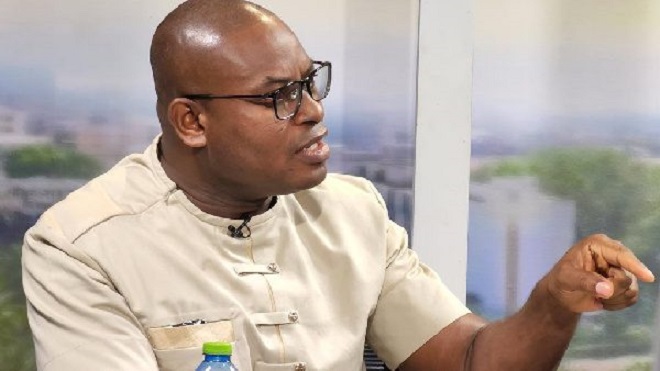Richard Ahiagbah
The New Patriotic Party (NPP), Director of Communications, Richard Ahiagbah, has called on the NDC to wait patiently for the outcome of investigations of the recent audio purported to be the voices of an unknown NPP executive and Police officer plotting to remove the IGP from office instead of associating it with the NPP that has never benefited and won elections in Ghana with an IGP.
Speaking on JOY FM current Affairs and News analysis programme, News file on Saturday, he said though the authenticity of the tape has not been verified, individuals on the tape may not have the capacity to negotiate and influence executive decision of the party in any way.
He said, “All of us, I am personally interested in finding out because I can tell you that the NPP has never orchestrated and benefited from any IGP to win elections one way or the other.
According to Mr. Ahiagbah, elections in Ghana do not have any direct correlations to the appointment of an IGP giving the number of times both the NDC and the NPP have won elections with an appointment of the ruling government or the party in opposition.
“There is no direct correlation because in 2000 when we won the elections, Peter Nanfuri who was appointed by the NDC, how come we won, was he not interested in engineering the election in their favour, in 2008 when the NDC won the election, Patrick Kwarteng, appointed by President Kuffour was the one in charge, why didn’t he engineer the elections in our favour, in 2016, John Kudalor was there why didn’t he engineer the election of our win. Clearly there is no evidence there,” he said.
“The NDC is jumping ahead of itself, I am wondering why that didn’t happen in 2000, 2008 and 20016 I am giving you instances because in both elections, both parties wanted to win so if they knew how to win elections with an IGP, they would have used him,” he said.
He, however, mentioned that the President has the power to appoint an IGP by reason of performance or lack of performance.
By Ebenezer K. Amponsah

